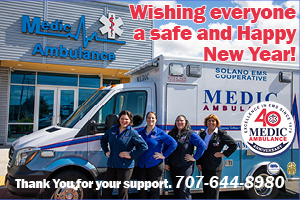 Have you ever wondered why a medical assistant takes your blood pressure every time you are at the doctor’s office? Have you ever wondered why your primary care provider asks you to get blood work, specifically a lipid panel, done at least once a year? The reason is simple: they care about your heart. Let’s explore heart health through the lens of blood pressure and blood lipids.
Have you ever wondered why a medical assistant takes your blood pressure every time you are at the doctor’s office? Have you ever wondered why your primary care provider asks you to get blood work, specifically a lipid panel, done at least once a year? The reason is simple: they care about your heart. Let’s explore heart health through the lens of blood pressure and blood lipids.
Blood Pressure
What are the causes of high blood pressure (hypertension)? Most people who have high blood pressure would fall into a category called essential hypertension, meaning there is no known cause by one identifiable factor. Poor lifestyle and genetics play a role in its development. Another category – secondary hypertension – links to a specific cause, e.g., renal disease or drug-induced.
What are the symptoms of high blood pressure? High blood pressure usually does not exhibit symptoms; thus, it is called a “silent killer” and often is untreated. Throbbing headache, fatigue, and/or shortness of breath might occur if blood pressure is very high. Uncontrolled high blood pressure for long periods of time can lead to stroke and heart attack.
How would I know if I have high blood pressure? High blood pressure can be diagnosed when two separate blood pressure readings at or above 120/80 are obtained on two different days. Blood pressure medication is usually started when readings are at or above 140/90. Pre-hypertension-blood-pressure readings are between 120/80 and 139/89.
How is high blood pressure managed? In addition to blood pressure medications, lifestyle modifications are often encouraged to help optimize blood pressure control. Lifestyle modifications include weight management (BMI between 18.5 and 24.9 kg/m2), diets high in fruits and vegetables with low-fat dairy products, limiting sodium intake (less than 2.4 grams per day), increased physical activity (e.g., brisk walking 30 minutes per day, 5 days per week), moderate alcohol consumption (women 1 drink per day; men 2 drinks per day), and smoking cessation.
Blood Lipids
What are the causes and consequences of high blood lipids (hyperlipidemia)? Untreated, elevated high blood lipids (e.g., LDL (or “bad”) cholesterol) can lead to heart attack and stroke. The most common causes of elevated LDL cholesterol levels pertaining to diet are excessive intake of saturated or trans fats and weight gain. Genetics also plays a role in elevated cholesterol levels.
What are the symptoms or signs of high blood lipids? High blood lipids are largely asymptomatic. When the levels are very high, some patients might have fats built up under the surface of the skin, deposits of cholesterol on the eyelids, or a formation of rings with lipids around the edge of the cornea in both eyes.
How would I know if I have high blood lipids? Oftentimes, people find out they have high blood lipids through routine blood work, called a lipid panel. Lipid panels looks at total cholesterol, LDL (or “bad”) cholesterol, HDL (or “good”) cholesterol, and triglyceride.
How are high blood lipids controlled? High blood lipids can be managed by lipid reduction medications, largely by a class of medications called statins. In terms of lifestyle modifications, the management of high blood lipids is very similar to the management of high blood pressure. The emphases are consuming a diet high in vegetables, fruits, and whole grains; aiming to have only 5% to 6% of calories coming from saturated fat; engaging in aerobic physical activities; maintaining a healthy weight (same BMI goal stated above); and avoiding tobacco products.
Maintaining a healthy heart requires work. It takes a daily effort plus having reminders and constant lifestyle modifications. A cliché, perhaps, but very true: prevention is better than treatment. The actions are simple to prevent the consequences from high blood pressure and blood lipids, but they are very hard to maintain: be adherent to medications, monitor daily blood pressure, get annual blood work done on time, be mindful of what we eat, stay active, and stop smoking. After all, high blood pressure and high blood lipids are largely preventable. Be our own self-advocate: take control of our own blood pressure and lipids!
By Clipper F. Young, PharmD, MPH, CDE
Assistant Professor and Clinical Pharmacist
Touro University California College of Osteopathic Medicine & College of Pharmacy















































